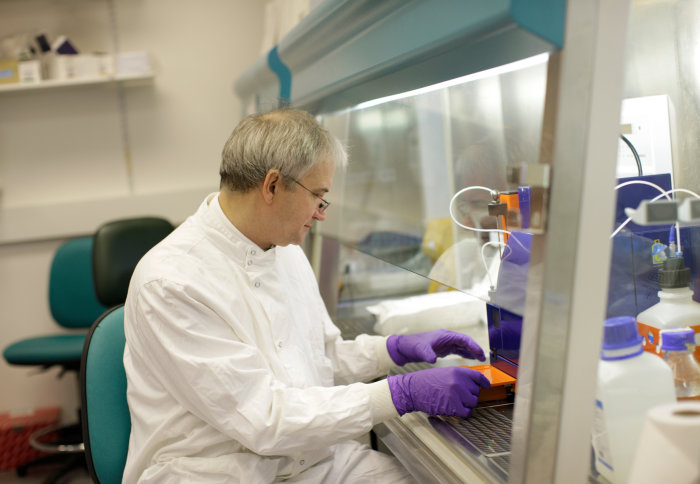COVID-19 trial begins at Imperial to understand and treat the disease
by Maxine Myers

Thousands of samples from COVID-19 patients have been collected so far to help researchers learn more about the disease and how it progresses.
Researchers from the Universities of Edinburgh, Liverpool and Imperial are collecting blood samples and clinical data from COVID-19 patients in hospitals across the UK including St Mary’s and Charing Cross Hospitals, part of Imperial College Healthcare NHS Trust. This UK-wide study is called the International Severe Acute Respiratory Infection Consortium (ISARIC4C) study.
Our study demonstrates the vital importance of forward planning and investment which has allowed us to carry out at speed this study and is providing us with vital insights and results to help us tackle this pandemic. Professor Peter Openshaw
The ISARIC4C study, the largest undertaken in Europe, involves a national consortium of researchers that will gather data from more than 15,000 patients with COVID-19 admitted to 166 hospitals throughout the UK. Some of these samples have already been analysed by scientists at Imperial.
Preliminary analysis confirms that high blood pressure, coronary heart disease, obesity and chronic lung disease are risk factors that can lead to severe cases of COVID-19. The team will continue to collect more samples from patients over the next year and start reporting results over the next few weeks.
The team hopes to uncover more about who is at higher risk of severe illness and why, what is the best way to diagnose the disease, what effects treatments have and what role the immune system has in protection and, potentially, in causing harm.
Underpinning clinical decision making
The data from study will underpin clinical decision making and provide a foundation for improved understanding of the disease. The team also hopes that the data will help the government further plan its national response.
The project is funded by the Medical Research Council (MRC UK) and Research Councils UK (UKRI).
Professor Peter Openshaw from the National Heart and Lung Institute and Honorary Physician at Imperial College Healthcare NHS Trust is one of the three researchers leading the study. He said: “This pandemic has highlighted the need for rapid research which can help inform the government’s response. We have learnt lessons from previous pandemics and were able to put in place plans to develop and implement large-scale studies in preparation for future infectious outbreaks.
“Our study demonstrates the vital importance of forward planning and investment which has allowed us to carry out at speed this study and is providing us with vital insights and results to help us tackle this pandemic."
He spoke to Maxine Myers about how study can help inform the government’s response to tackling COVID-19, the potential to develop new drugs and the lessons we can learn from previous pandemics.
Article supporters
Article text (excluding photos or graphics) © Imperial College London.
Photos and graphics subject to third party copyright used with permission or © Imperial College London.
Reporter
Maxine Myers
Communications Division